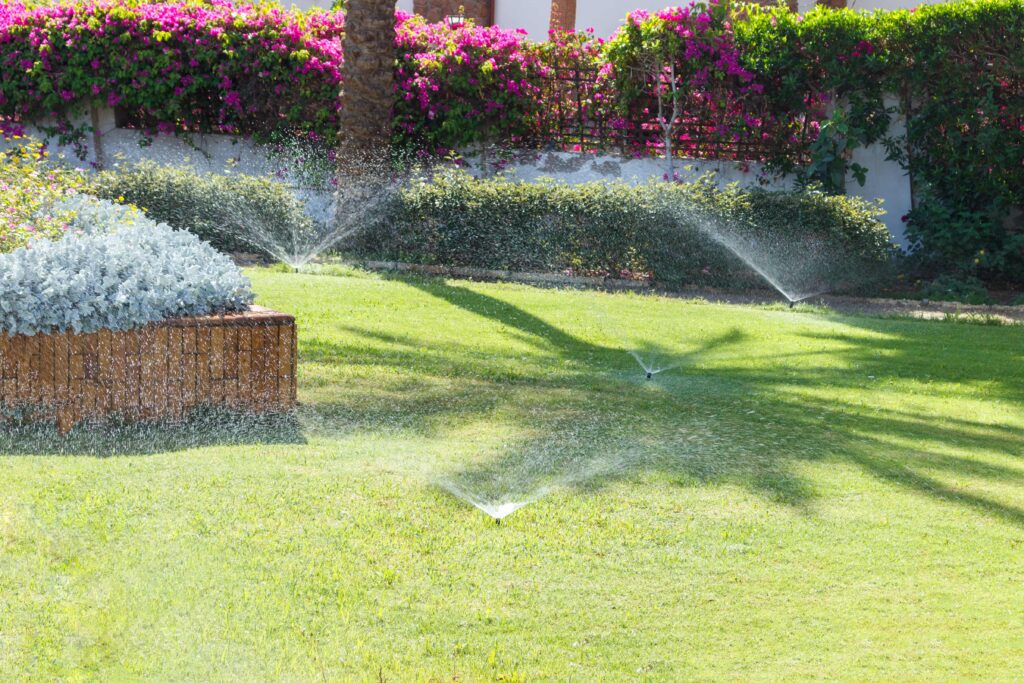One of the most common questions we receive at Plant Professionals is, “Can grass be overwatered?” It’s natural to assume that in Miami’s hot weather, more water for your home’s landscaped lawn or business property is only going to help the grass flourish. But even though water is vital to any plant, problems with overwatering can wreak havoc on your landscaping.
As it turns out, one of the most common lawn care mistakes is overwatering. When you’re trying to determine how much to water grass, it’s very easy to give your lawn too much of a good thing. Like anything else, moderation is key when you’re assessing how much water grass needs.
How to Tell If the Lawn is Overwatered?
Here are a few simple signs that your lawn grass is getting too much water:
- Water runoff: If you constantly notice streams of water running down your lawn and into the sidewalk, street, or other areas of your yard, that can be a symptom of overwatering.
- A soft, spongy texture: When you step on your grass, you don’t want it to feel squishy or spongey underfoot. With a quick “step test,” you can immediately know if your grass is being overwatered.
- Stubborn weeds: Excess water isn’t good for healthy grass, but plenty of types of weeds will thrive under those conditions. If you’re constantly fighting against weeds such as yellow nutsedge or smooth crabgrass, you might want to dial back on your sprinkler systems’ schedule.
- Mushrooms and other fungi: Don’t let their unassuming appearance fool you, mushrooms are not your friend. Not only are they definitely a sign that you’re overwatering your lawn, but they can also be very dangerous for children and pets.
- Thatch: Thatch, which is partially-decomposed plant material, is helpful in small amounts. However, if you’re noticing a significant build-up of thatch, that means that it hasn’t been able to break down due to too much water.
- Pests: Once a thick layer of thatch has set it, your lawn becomes an ideal home for bugs. If you’re spotting more bugs than usual, it could come down to lawn overwatering.
How to Save Overwatered Grass?
So, you’ve determined that you’ve been giving your grass too much water – but don’t worry, all is not lost. Here’s how to fix overwatering issues quickly and effectively, so you can get your grass back to looking gorgeously green and healthy in no time.
- Reduce how much and how often you’re watering. Instead of immediately cutting off your lawn’s water supply, gradually adjust the schedule. Consider the local climate and the season when you’re deciding how often to water grass.
- Deal with fungus, pests, and thatch issues. Once you get the watering issue under control, make sure to take care of the other problems that have occurred as a result. Otherwise, you run the risk of inhibiting future lawn growth (or even having your lawn die altogether).
- Fertilize. Overwatering can seriously deplete your lawn of important nutrients. Replenish it with a high-quality fertilizer to get things back on track.
Get a Perfect Lawn with Help from Plant Professionals in Florida
Maintaining your landscape can be a challenge, even if you know the basics of lawn and plant care. Why not turn the task over to a team of landscaping professionals that can keep your outdoor spaces looking its very best?
Plant Professionals provides professional landscaping services in Miami, Broward, Monroe, and Palm Beach Counties. You can reclaim your time and energy, and get back to enjoying our famously fabulous South Florida weather in a beautiful backyard you love.
Contact Plant Professionals to request an estimate or start lawn care services today!
Featured Image: SNeG17 / Shutterstock

